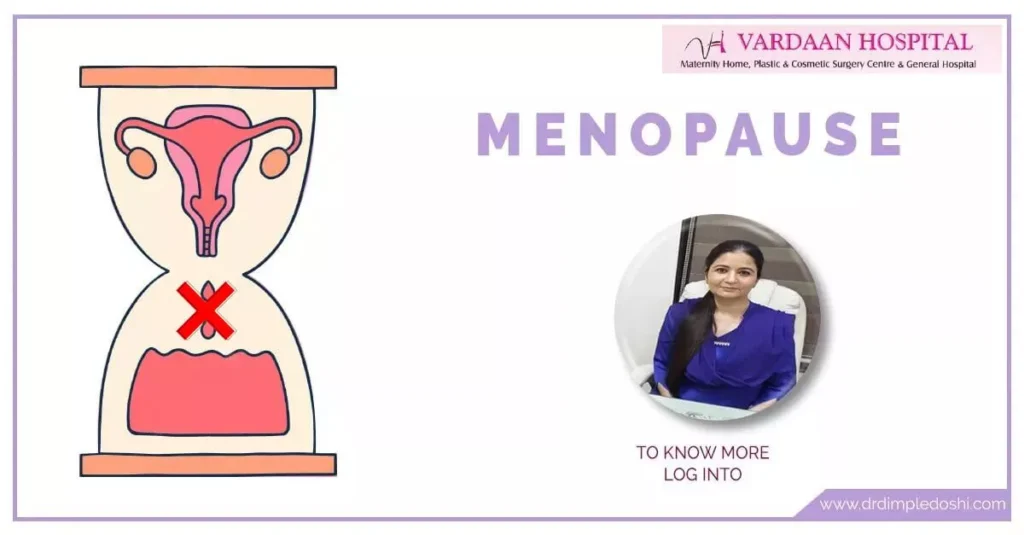Dr. Dimple Doshi (MBBS, MD, DGO)
Lady Gynecologist & Laparoscopic Surgeon
27+ years’ experience
20,000+ surgeries completed

Are you facing irregular periods, sudden hot flashes, mood swings, or sleep disturbances? These could be signs of menopause—a natural stage in every woman’s life when menstruation permanently stops.
For some women, menopause feels like freedom from monthly cycles. But for others, it brings anxiety, hormonal changes, and emotional challenges. Symptoms like night sweats, irritability, joint pain, and vaginal dryness can make daily life stressful. Combined with life stressors such as aging parents, children leaving home, or changing roles, this phase can feel overwhelming.
The good news? Menopause can be managed smoothly with the right guidance. At Vardaan Hospital, Dr. Dimple Doshi offers comprehensive care—from symptom relief and hormone therapy to lifestyle modifications—helping women embrace this transition confidently and maintain their overall well-being.
Take charge of your health today.
Book your consultation with Dr. Dimple Doshi at
Vardaan Hospital, Goregaon West, Mumbai.